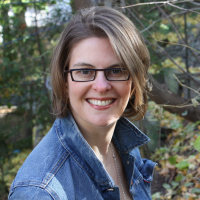Over the last week, the Jewish press has been abuzz with coverage of the decision by the Montreal Jewish Federation-sponsored Le Mood (French-English wordplay on the Hebrew term Limmud) festival to disinvite two speakers. Aaron Lakoff and Sarah Woolf were scheduled to discuss Jewish radicalism and early Jewish labor movements, respectively, but it was their other affiliations that raised hackles among the conference organizers.Sarah Woolf had helped launch an initiative called Renounce Birthright, which seeks to “Educate young Jews about the connections between Birthright trips and the ongoing colonization and occupation of Palestine.” Lakoff has been a member of the Jewish, anti-Zionist group Not in Our Name, which supports Israel Apartheid Week on Canadian campuses.In a press release, Federation CJA (Combined Jewish Appeal) explained its decision:

Federation CJA has exercised our right, as any organization would be expected to do, to draw the line at funding and providing a platform, whether directly or indirectly, to those who deny the right of Israel to exist as a Jewish State.
Was this a blatant act of censorship and injustice, or a decision around which reasonable people could disagree? First, more background.
In response to the decision, Daniel Sieradski announced he was pulling out from the conference, where he had been slated to present. Sieradski, who frequently presents on Jewish counter-culture at Limmud gatherings worldwide, stressed to me in a phone interview that he found this “funder-driven Judaism, where plutocrats dictate the boundaries of free speech and acceptable political thought,” to be “exceedingly troubling.”
As to the particulars of the Israel/Palestine issue that led the conference organizers to perceive Lakoff and Woolf to be beyond the pale, Sieradski said this: “I can understand and relate to pro-Palestinian activists’ views of colonialism, the dispossession of Palestinians, and racist Israeli policies, even if I disagree with the outcome of their analysis. Whether the appropriate resolution to the conflict is a binational state is a question for discussion. It's not, however, in my opinion, a justifiable or moral basis for excluding individuals from the Jewish community. If you can't defend your point of view without silencing the other side, you've lost the debate."
Only 65 years since what was perceived by most Jews to be the miracle of the founding of the State of Israel out of the ashes of the Holocaust, the mainstream Jewish community remains in the grip of the Zionist moment. Accordingly, connection to Israel, in some form, remains a central piece of the mission of many Jewish institutions. Lakoff and Woolf—and the groups with which they affiliate—reject the core identity of Israel as a Jewish State. What is the obligation of the umbrella planning and funding organization of the Jewish community, namely the Federation, to endorse the widest spectrum of views around Israel, when some of these views would seek to dismantle the political project of Jewish sovereignty which generations of Jews have sought to support and uphold?
One could argue, as Sieradski implies, that allowing these voices a place at a day-long festival that draws upwards of 1,000 participants grappling with a range of intellectual and cultural topics is not necessarily an endorsement of any particular political position, but is rather the upholding of the principle of political and intellectual diversity.
Then again, one could try a thought experiment. If these panelists happened to support a different cause that the majority of members of the community deemed unsavory—say, the harmful attempts to change the sexual orientation of gays and lesbians—one might applaud the Federation’s decision in the name of the ethic of respect for sexual diversity and basic humanism.
The problem, of course, is when the perceived issue revolves around questions of racism, colonialism, exile and justice.
In solidarity with Lakoff and Woolf, Sarah Schulman, a member of the advisory board of Jewish Voice for Peace and author of the controversial 2011 New York Times op-ed accusing Israel of “pinkwashing,” said on Facebook that she was attending the alternate event that Lakoff and Woolf were planning. Intended as a symbolic act (she is currently in New York, not in Montreal), Schulman explained to me that she feels “inspired every time young Jews take a stand against racial supremacy. Each individual has a responsibility to resist negative bonds built around bullying, supremacy ideology and the refusal to negotiate.”
Ultimately, Lakoff and Woolf are right when they say, as they did in a published statement on Lakoff’s blog, that “while we have been singled out, we don’t believe our banning is really about us as individuals: it’s about controlling the conversation and quieting dissent.”
But the question remains what sort of dissent Jewish communities are willing to tolerate. As with so many issues that may be viewed by some as political and by others as ethical, we urgently need deep, reasoned and open discussion on the issue of communal boundaries—and whether they should exist at all. Surely this would make a good panel topic at next year’s Le Mood conference—if any of the Jewish radicals decide to stick around.




